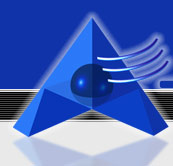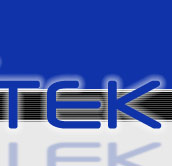 |
IPC-A-600 Certified IPC Trainer Certification |
Nearly everything electronic in the universe depends on the Printed Circuit Board (PCB). For many years, the IPC-A-600 "Acceptability of Printed Boards" document has set the standard for PCB workmanship quality, giving comprehensive acceptance criteria with full colour illustrations and photographs showing all types of printed board surface and internal conditions. Because of its importance to both the PCB manufacturer and assembler, the IPC-A-600 has become one of the most widely used documents ever published by IPC.
Course
Objective:
The objective is to qualify and certify the student in the IPC-A-600 Training and Certification Program. This certification helps all segments of the electronics interconnection industry improve their understanding of printed board quality issues; greatly enhances communication between PCB manufacturers, their suppliers and their customers; and provides a valuable credential to industry professionals as well as recognition for their companies. The objective of this training is to qualify and certify the student as a Certified IPC Trainer (CIT) in the IPC-A-600. In this capacity the CIT may conduct Certified IPC Specialist (CIS) training in the IPC-A-600 and award the IPC-A-600 Certified IPC Specialist certificate.
Who should enrol in Certified IPC Training?
Anyone who is responsible for product quality and reliability would benefit from becoming a Certified IPC trainer. Trainers, QA, QC, engineering, supervisors or managers versed in electronic assembly make excellent candidates.
Course
Topics:
|
|
Printed board product classifications and acceptance criteria
|
|
|
Base
material surface and subsurface conditions, such as measling/crazing
|
|
|
Solder
resist coverage over conductors and registration to lands
|
|
|
Conductor
width and spacing, and annular ring requirements |
|
|
Dielectric
material criteria for etchback, voids, and resin recession
|
|
|
Plated-through
hole requirements for copper plating thickness, voids,
nodules and cracks |
|
Acceptance criteria for flexible, rigid-flex, and metal core printed boards |
|
|
Skills for teaching the lesson plan effectively |
Course Modules:
|
Module 1 : Introduction/IPC Professional training policies/Training Skills |
|
Module 2 : External Observable Characteristics |
|
Module 3 : Internal Observable Characteristics |
|
Module 4 : Miscellaneous |
Certified IPC Trainer Benefits:
Knowledge of acceptance criteria is essential in tracing nonconforming conditions to their origins in the manufacturing process. This training program makes a powerful statement to users of printed circuit boards that a company is serious about continuous quality improvement. No one wants to put dozens of expensive components on a defective PCB. IPC-A-600 training and certification gives the assembler the information to do a better job at incoming inspection. Knowing acceptable conditions means that boards are not needlessly scrapped; knowing nonconforming conditions saves the assembler from an expensive component mounting operation. Certified inspectors working in electronic assembly can forge a more productive relationship with their PCB suppliers.
Upon satisfactory course completion, participants will receive IPC certification, which is valid for 2 years. This training and certification has immediate recognition and value throughout the electronics industry. Each Certified IPC Trainer graduate receives:
|
PowerPoint slides illustrating every aspect of the IPC-A-600 series document and training information
|
|
The IPC-A-600, " Acceptability of Printed Boards" |
|
IPC-A-600 Certified IPC Trainer certificate
|
Booking
Form Quotation
Request Form Print
Page
|

